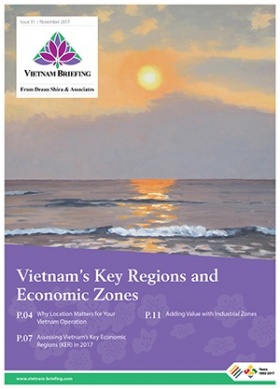Vietnam’s Snack Foods Market: Knowing Your Consumers
Snack foods, which was the fastest growing segment in the food market in Vietnam according to Nielsen, grew by 21 percent last year, thrice the industry average. The rise in urbanization, disposable incomes, and standard of living is expected to drive the snack market to around US$1 billion by 2020 in Vietnam. Snacks are considered as non-essential products and growth in the snack segment is a positive sign for the consumer market as it signifies higher spending power on discretionary items.
Snack foods market
According to a recent study by Kantar Worldpanel, which deals in consumer knowledge and insights based on continuous consumer panels, Vietnamese snack market which was valued at US$518 million in 2015 is expected to grow to US$1 billion by 2020. The FMCG market in Vietnam is predicted to grow between five and six percent CAGR by 2020.
Consumer spending
According to Kantar Worldpanel, spending per buyer on snacks in the Urban 4 cities which includes Ho Chi Minh, Ha Noi, Da Nang and Can Tho has increased from VND 914,000 VND in 2015 to VND 1,068,000 in 2017. In the rural market, spending increased from VND 547,000 in 2015 to VND 619,000 in 2017.
Regional differences
Consumer preferences in Vietnam differ depending on the region. In terms of taste, plainness is preferred in the north, while the central and south prefers spiciness and sweetness respectively, according to Kantar Worldpanel.
In terms of categories, ice-creams and soft cakes are mostly preferred in the North, while biscuits and candy are preferred in the central region. Snacks and nuts, one of the fastest growing categories are mostly preferred in the South.
Major players
Major players in the market include Orion Food Vina, Vinamilk, PepsiCo Vietnam, Mondelez Kinh Do, and Bien Hoa Confectionery Corp.
Consumer trends
Health concerns
Health is a major deciding factor for Vietnamese consumers in the food market. According to a Nielsen report, 83 percent of the consumers make dietary choices to avoid bad health effects, much higher than the global average of 79 percent. Around 89 percent are ready to pay higher prices if it means better quality food products that promote health benefits, much higher than the global average of 76 percent.
In terms of packaging and content, 88 percent of Vietnamese consumers do read the labels to know about the nutrition content, while 76 percent of consumers would like to know about all the ingredients in the product.
The top five attributes in a product that drives health-conscious consumers are the presence of calcium, minerals, vitamins, and micronutrients as well as low cholesterol levels.
Premium products
With the rise in disposable incomes and middle-class population, a higher number of premium products are being introduced and preferred by Vietnamese consumers. Offerings, benefits, and packaging are the major components that define premium in the market, rather than price.
According to Nielsen, almost a quarter (23 percent) of the snack market fall under the premium segment. Pricing which usually defines premium in most consumer goods does not hold true for the snack market. If the stock keeping unit’s (SKU) price increases by more than five percent, it can have a negative seven percent impact on the volume in the snack market. No change in price or a reduction in price by five percent, has a positive impact of 14 percent and 21 percent respectively on the volumes, according to Nielsen.
Convenience
As more people move from rural areas to cities, the need for convenience has led to the rapid growth in the number of mini-marts and convenience stores. As of February 2018, there were 1,817 mini-marts and 823 convenience stores.
To capitalize on the demand for convenience, brands should focus on smaller and flexible packaging, ready-to-eat meals, health/premium products, and increasing presence in convenience stores and mini-marts.
Going forward, snack companies need to evolve their product portfolio and focus on products with functional benefits to meet the changing consumer preferences and needs.
Vietnam Briefing is produced by Dezan Shira & Associates. The firm assists foreign investors throughout Asia and maintains offices in China, Hong Kong, Indonesia, Singapore, Vietnam, India, and Russia.
Please contact vietnam@dezshira.com or visit our website at www.dezshira.com.
- Previous Article Vietnam – Italy : Trade and Investment Relations
- Next Article Vietnam Tightens Multi-Level Marketing Regulations








